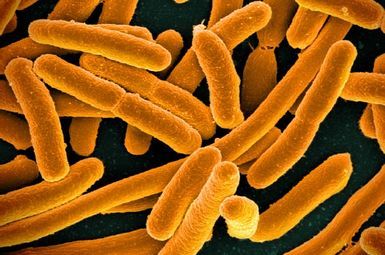
Research led by the University of Michigan shows that communities of color in Texas face pronounced risks of E. coli exposure in nearby waters after intense rain.

Over one billion people worldwide lack adequate access to healthy food, even as the global food supply is more than adequate. At the same time, obesity persists, and diet-related diseases are the leading cause of death in the U.S. University of Michigan researchers are analyzing how food access disparities manifest in different communities, and are assessing the efficacy of current and potential policy solutions. Experts at the Sustainable Food Systems Initiative coordinate multidisciplinary approaches, while the Campus Farm and U-M Sustainable Food Program provide living, learning laboratories for U-M students to support more equitable food systems.

Research led by the University of Michigan shows that communities of color in Texas face pronounced risks of E. coli exposure in nearby waters after intense rain.
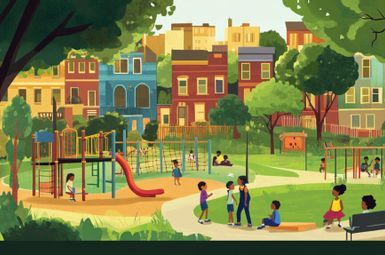
Community program and policy interventions aimed at reducing screen time are less successful in neighborhoods that lack green space

To combat climate change, the world needs to pivot away from fossil fuels. But building battery electric vehicles and infrastructure for renewable energy will require enormous amounts of minerals and resources.
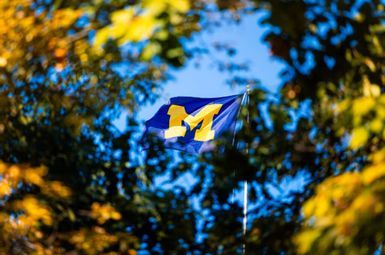
The Mellon Foundation has awarded nearly $4 million in a first-of-its kind grant to bolster the University of Michigan’s leading work in environmental justice.
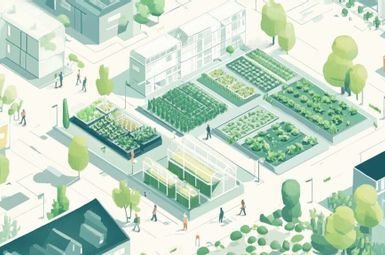
Built on the expertise and experiences of urban agriculturalists, along with research from the University of Michigan, a new policy brief urges Congress to fully fund the Office of Urban Agriculture.
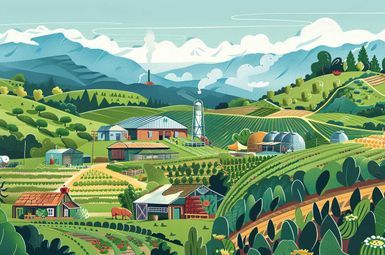
Faced with an ecological crisis, public health emergencies and socioeconomic inequities, agroecology emerges as a transdisciplinary beacon of hope.
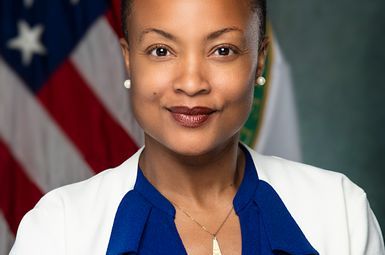
Currently the director of the Office of Energy Justice and Equity and the secretarial adviser on equity at the U.S. Department of Energy, and formerly the department’s chief diversity officer, Baker will advance sustainability education and research across U-M schools and colleges.
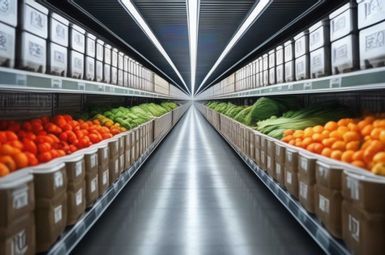
About a third of the food produced globally each year goes to waste, while approximately 800 million people suffer from hunger, according to the U.N.’s Food and Agriculture Organization.
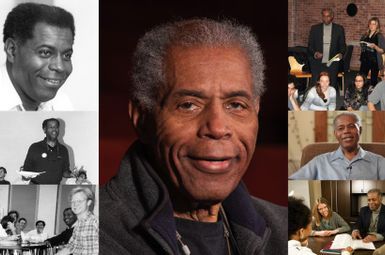
"For more than four decades, Bunyan taught and mentored SEAS students, modeling for them how to be effective advocates for equity and justice in communities that face environmental racism. Thanks to Bunyan’s tireless passion for creating change, his legacy as an environmental justice pioneer will live on in future generations of advocates.”
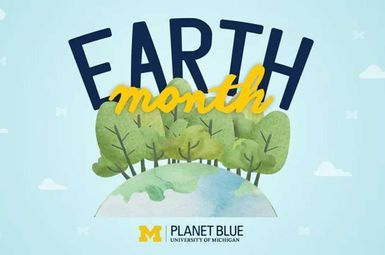
U-M is marking late March and all of April with a series of events focused on sustainability and climate action, continuing a tradition that began with the first “Teach-In on the Environment” in 1970—which grew into what is now known as Earth Day.

Autonomous and electric vehicles can be a positive force for people and the planet, but widespread gains require government incentives and investment to ensure access for users across the economic spectrum.
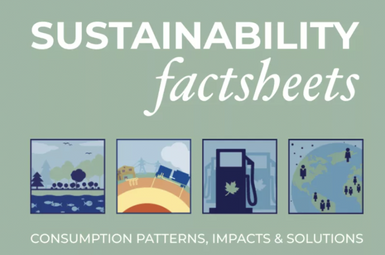
Each peer-reviewed factsheet presents data on patterns of use, life cycle impacts, and sustainable solutions. Updated annually by a current SEAS graduate student, the collection is a free resource to inform journalists, policymakers, business professionals, students, teachers and the public.
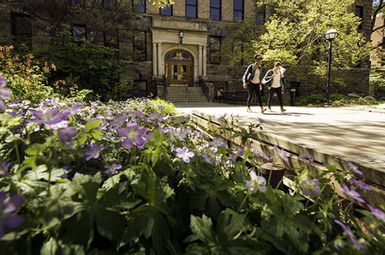
"We often say you don’t know where you’re going unless you know where you came from. Studying our history and being aware of all of the deep nuances of Black ag history is so important for what we’re doing today."
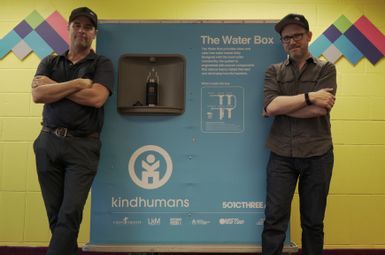
When an emergency causes a disruption in access to clean water, it seems reasonable to respond by providing the public with bottled water. In the short term, this can provide a safe supply of water while the problems get sorted out. But what if the emergency has lasted eight years, and counting, as it has in Flint, Michigan?
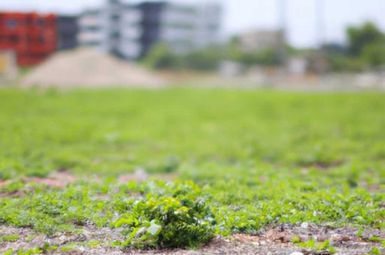
Communities that are engaged in cleaning, mowing and repurposing vacant spaces are likely to experience greater reductions in violence and crime than neighborhoods that do not participate in these activities, according to new research led by the University of Michigan.
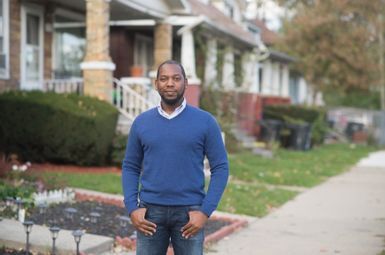
Reames received the award in recognition of his widely influential research into the intersections of affordability, access to clean energy resources and related disparities across race, class and place, which has been the cornerstone of discussions about equity among policy makers at all levels of government.
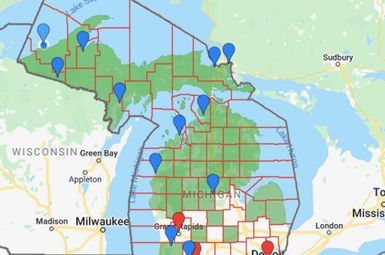
U-M researchers are partnering with the Michigan Farm Bureau to understand the unique challenges rural families face when accessing nutritious meals through food assistance. Often, these programs are designed without the user perspective in mind and are implemented in ways that many families do not find accessible or respectful.
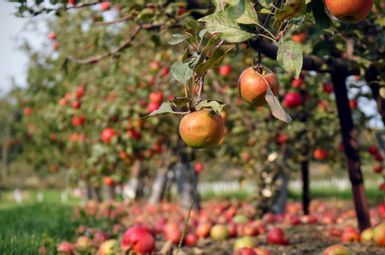
The Michigan Farmworker Project (MFP) is a community-based participatory research initiative aimed at improving the social and environmental health of Michigan’s farmworker population, who play a critical role in the state’s food supply chain. In May 2020, the researchers shared first-of-its-kind findings that provided evidence-based approaches to better protecting Michigan’s farmworkers from COVID-19 while providing essential work during the pandemic.
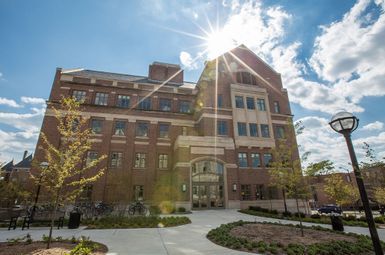
Three tenure track faculty positions will be hired, one each in the Ford School, the School for Environment and Sustainability (SEAS), and the School of Public Health (SPH), to examine the connections among racism and racial violence, environmental injustice and racialized health disparities to achieve better knowledge of the way policies and actions exacerbate or ameliorate unequal burdens of harm, according to the University’s Anti-Racism Hiring Initiative.
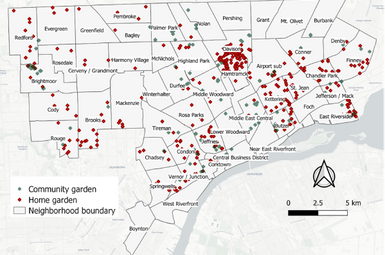
A wide-scale look at Detroit’s urban gardens finds that while they don’t seem to foreshadow gentrification in the city, there are some unsettling trends about where they’re located and the sociodemographics in those areas.
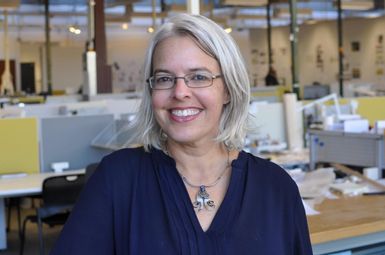
Taubman College Associate Professor of Urban and Regional Planning Lesli Hoey is leading a team of U-M faculty awarded a competitive grant from the Gilbert Whitaker Fund for the Improvement of Teaching to pilot a new Transformative Food Systems (TFS) Seminar. The interdisciplinary team seeks to fill a key gap in U-M’s sustainable food systems curriculum through a new cross-unit course.
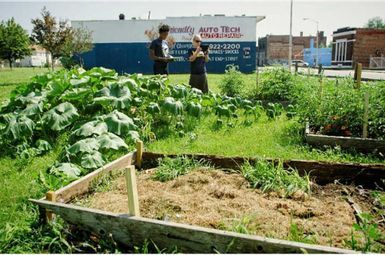
Despite Detroit’s reputation as a mecca for urban agriculture, a new analysis of the city’s Lower Eastside, which covers 15 square miles, found that community and private gardens occupy less than 1% of the vacant land. Even so, gardens there play an important role in reducing neighborhood blight and have the potential to provide other significant benefits to residents in the future.

More than 20% of older adults in the United States will experience food insufficiency at some point in their 60s and 70s, according to a U-M study.
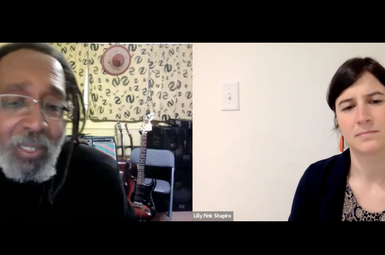
Malik Yakini is a co-founder and executive director of the Detroit Black Community Food Security Network, which aims to combat food insecurity and cultivate food sovereignty in Detroit’s Black community. The organization has operated the city’s largest urban farm, D-Town, in Rouge Park for more than 20 years and is working to launch the Detroit People’s Food Co-op.
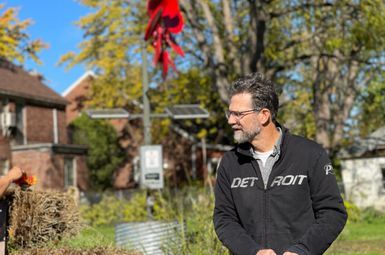
To Paul Draus, a trash-filled city alleyway is an opportunity, a river abused by industrial waste has potential and people battling addiction have promise. Detroit has plenty of all three, and Draus has joined arms with people trying to transform those seemingly undesirable qualities into something beneficial and beautiful.
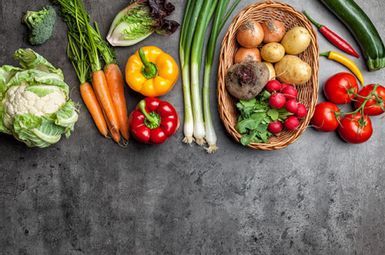
The Food Literacy for All series is a community-academic partnership course that invites guest speakers each week to address “challenges and opportunities of diverse food systems.” Recent speaker Dr. Priya Fielding-Singh, a sociologist and assistant professor at the University of Utah, researches the causes and consequences of health disparities in the US, with a focus on gender and family.

To LSA Collegiate Fellow and anthropologist Alyssa Paredes, the banana narrative is a parable for commerce, environmental degradation, and disparity. By uncovering the complex paradoxes and disconnects in the banana industry, Paredes reveals how industrialized food production shapes the fate of many rural regions in our world.
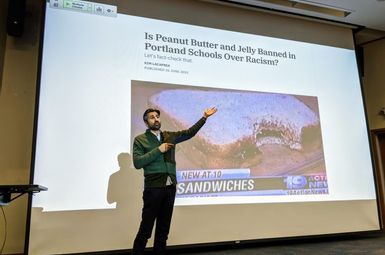
Zahir Janmohamed, co-founder of the James Beard nominated podcast Racist Sandwich, discusses why he thinks the subjects of race, gender, class cannot be separated from discussions about food; and offers advice and lessons learned from his successes and failures to get traditional media to center their stories around non-white, non-male voices.
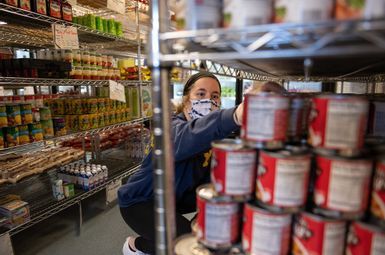
We’ve all heard the axiom: “Give a man a fish, and he will eat for a day. Teach a man to fish, and he will eat for a lifetime.” That’s all well and good, says Alex Bryan, BA ’07. “But it’s a lot easier to learn to fish if you’re not really hungry at the time.”
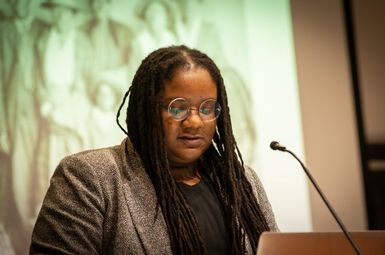
“The reason your neighborhood and your food system are connected is that they are your network. Your neighborhood is also where you can see investment and see those investments in your lawn, your business, your neighborhood, returned, because people stay.”
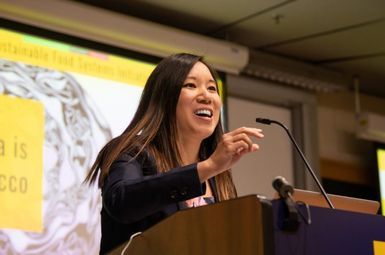
My research program mostly centers around food insecurity. For the past three to four years, I have been focused on student food insecurity because it has become such an emergent issue around college students’ health and wellbeing.
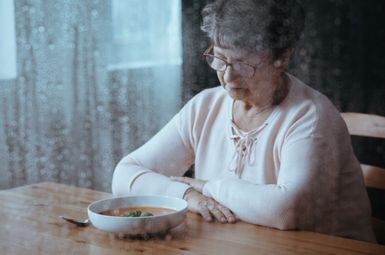
Even before the coronavirus pandemic wreaked havoc with the nation’s food supply and economy, one in seven adults between the ages of 50 and 80 already had trouble getting enough food because of cost or other issues, a new poll finds. The percentage who said they’d experienced food insecurity in the past year was even higher among those in their pre-Medicare years, and those who are African American or Latino.
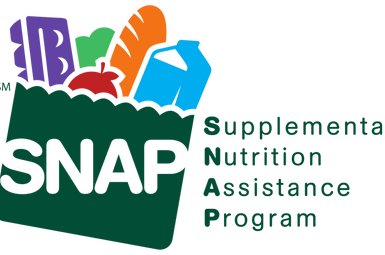
Children whose families have access to food assistance get more education, live longer and are less likely to rely on public assistance or be incarcerated as they grow up, according to a U-M-led study.
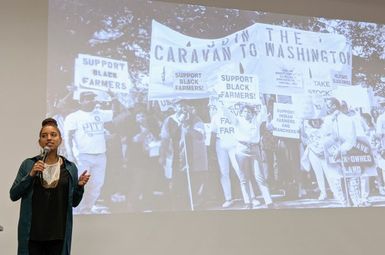
Some of our most cherished sustainable farming practices — from organic agriculture to the farm cooperative and the CSA — have roots in African wisdom. Yet, discrimination and violence against African-American farmers has led to our decline from 14 percent of all growers in 1920 to less than 2 percent today, with a corresponding loss of over 14 million acres of land.

Parents who experience food insecurity might think they’re protecting their children from their family’s food situation by eating less or different foods so their children can be spared. But a new study led by U-M researchers shows that children know more about food insecurity—the state of being without reliable access to a sufficient quantity of affordable, nutritious food—than their parents give them credit for.
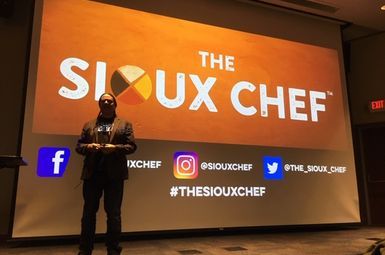
Sean Sherman, Oglala Lakota from the Pine Ridge reservation and founder of The Sioux Chef, is committed to revitalizing Native American cuisine. Through his research, Sherman has mapped out the foundations of indigenous food systems through an indigenous perspective.
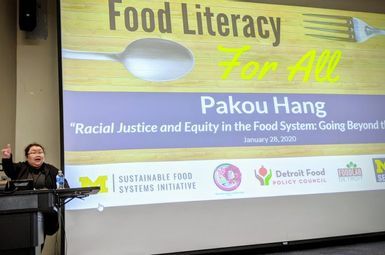
Pakou Hang, co-founder of the Minnesota-based Hmong American Farmers Association, speaks about the policies and practices that can feed a robust ecosystem and support the resilience of farmers of color.
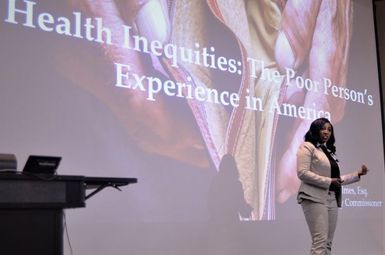
Jessica Holmes presents an overview of the Supplemental Nutrition Assistance Program (SNAP) and the potential impact of recent proposals on food insecure families, noting the impact of poverty on one’s overall health and life expectancy.
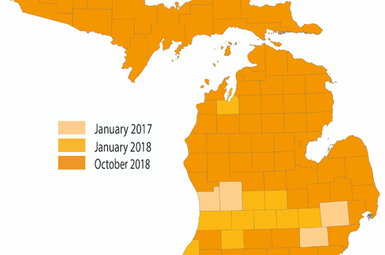
A new report released by the U-M Taubman College of Architecture and Urban Planning and the Washtenaw County organization Food Gatherers demonstrates the local impact of work requirements for those receiving food assistance from the Supplemental Nutrition Assistance Program, known as SNAP.